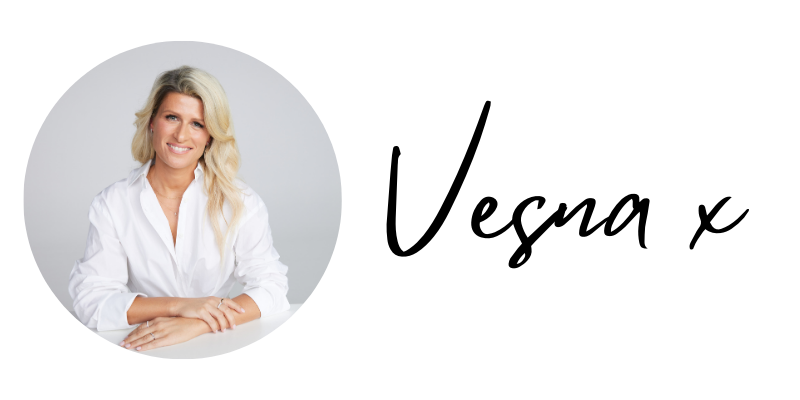👨👩👦 Personal Time Being Hijacked? Do This to Get Your Life Back
We’ve all been there. You finish a long day at work, but instead of enjoying your evening, you’re still thinking about emails, projects, and meetings. It feels like no matter how hard you try, work dramas keep interrupting your home life.
👉 Work stress is inevitable but not all stress is bad. High performers will actually seek out some stress in order to stretch and grow. But too much stress and not enough recovery has the opposite effect (want to know more about stress recovery, register for my upcoming masterclass here).
So in today’s email, I want to share five ways to manage your mind and create boundaries around your time so you can prevent work stress from effecting your personal life.
1. Turn off your notifications
One of the biggest stressors I see when I’ve run workplace wellbeing workshops for corporate teams is this unspoken pressure to be available all the time. It keeps work on your mind long after you’ve left the office which can lead to disrupted sleep and a ruined weekend.
To prevent this happening you need to set clear boundaries around your availability outside of working hours. Let your team or manager know that you won’t be responding to work-related messages after a certain time in the evening and then make sure to mute and ignore them after a certain time in the evening.
👉 Even if you’ve been working for a company for years it’s not too late to set this expectation with your boss and team.
2. Get it out of your head
A lot of my clients tell me they use the evenings or their bedtime to process everything from their day – but if you’re lying awake listing out everything you need to do or planning out your day this is going to effect your ability to sleep and recover.
👉 So the most important thing is to get everything out of your head so you’re not replaying everything in your head over and over again. The best time to do this is before you leave work – write down everything you need to do the next day onto paper and you’ll find the mind can then let it go.
I had a client who used to think that bedtime was the only time she could process her work day – but she also had issues falling asleep. She didn’t think it would make a difference but once she started writing things down before she left the office, her mind was finally able to switch off at night, and she started sleeping better.
3. Remind yourself that you can handle whatever comes your way
One of the biggest contributors to work stress is overthinking. We start to imagine worst-case scenarios, thinking, “What if this happens?” or “What if I can’t deal with that situation?”
But how many times did it ever turn out as bad as you imagined it would?
👉 Take a moment to think about all the challenges you’ve already overcome. Remind yourself that you have the inner resources to handle whatever comes your way – because you’ve done it before, and you can do it again.
4. Eat to reduce cortisol (the stress hormone)
One way to bring those stress hormones down is by eating foods that help lower cortisol levels.
Starchy vegetables and fruits like bananas, sweet potatoes, and mangoes can help you shift back into a calm, focused state. These foods help your brain move out of the “fight-or-flight” response and back into a more rational, clear-thinking mode.
👉 But remember to avoid processed carbs and sugars, which can have the opposite effect and actually raise your stress levels again.
5. Prioritize proper, restorative sleep
If you’re collapsing into bed exhausted at the end of the day, or if you’re falling asleep the second your head hits the pillow, it’s means you’re not getting enough sleep or enough quality sleep.
The aim is to get proper deep sleep which means getting to bed by 10 PM and aiming for a full eight hours. During this time, your body does its most important work – detoxifying your brain, producing the hormones that heal your body, and your mind is processing your emotions.
👉 After good restorative sleep you should see things differently, be able to handle work situations with more ease, and feel calmer overall.
If your mind is still overloaded when you wake up in the morning, it’s a sign you’re struggling with a high mental load.
These five strategies are simple but impactful ways to prevent work stress from taking over your personal life. And the best part is, they’re completely within your control – you don’t need to quit your job or wait for circumstances to change in order to feel better.
Hi, I'm Vesna!
I’m a Naturopath, Transformational Coach, Mind-body Medicine Specialist & Speaker, and I love supporting modern women who are overworked, busy & burnt out.
Freebie Alert:
Body + Business Reboot Assessment
Free Step-By-step plan designed for women in business.
Leave a Reply Cancel reply
You must be logged in to post a comment.
Where exhausted & anxious professional women regain their ENERGY & Confidence. So they can live the life they truly want.
